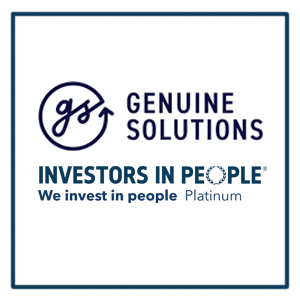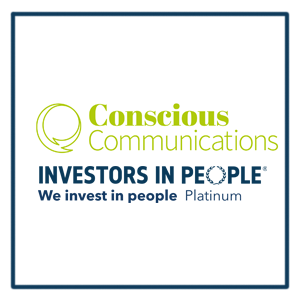Article Summary
If there’s one thing everyone can agree on when it comes to the future of work, it’s that recent history proves how quickly things can change. When the pandemic hit in 2020, trends which were merely on the horizon became reality almost overnight. Now we’re out the other side, businesses don’t just want to learn from what happened, they want to be better prepared for what might come.
It’s why our Make Work Better conference in September has so many sessions focused on what the workplace of the future will look like, including a dedicated session looking at the role of the people whose job it will be to help employers and employees navigate their way through these unchartered waters: HR. What does the future hold for this sector? And how can we make sure we’re ready for what’s coming?
The future of work – the “megatrends” affecting us all
You can’t assess the future of HR without first understanding the broader trends for the world of work. Published before the pandemic, but still highly relevant now, PwC’s Workforce of the future 2030 report sets out the global “megatrends” changing how we’ll work:
- The use of automation and AI will transform the number and type of jobs available.
- An aging population means workforce shortages will get worse, older workers will need to reskill, pension costs will rise and pressure on health and social services will increase.
- The global economic power balance is likely to shift and it’s the fast-developing countries which will benefit the most. Wealth disparity globally and within nations will become even more stark and there’ll be more migration and unemployment.
- Climate change means demand for water and energy is expected to increase 40% by 2030. The traditional energy industries will have to restructure and a growing green economy will create many new types of jobs.
Concurring with this analysis, the global management consultancy firm McKinsey & Co thinks we’ll see demand for high-skill jobs grow, in areas like healthcare and engineering, while there’ll be less need for middle and low-skill jobs, such as office support or food service.
UNLEASHING THE FUTURE OF HR:
A Dialogue between Paul Devoy and Peter Cheese
Influential HR leaders Paul Devoy and Peter Cheese discuss the future of HR, exploring tech impact, employee engagement, and aligning HR with business objectives.

What impact will these trends have on the future of HR?
“This is HR’s moment to lead organisations in navigating the future. They have a tremendous opportunity, and responsibility, to provide workers with guidance on the skills and capabilities they will need to be successful over the next decade.” That’s the thinking in a piece of research published in The Harvard Business Review by The Cognizant Centre for Future of Work and Future Workplace.
The view from McKinsey & Co is similar: “Although HR was once considered a stodgy support function, it’s now poised to serve as a strategic partner to the business, as relevant to success as R&D, sales, or production. But fulfilling that role will require nothing less than a transformation of HR itself.”
So, what sort of transformative change are we talking about? There seems to be general agreement on what the biggest issues are likely to be by 2030:
- Automation and AI
- The use of big data
- Skills gaps and training
- Business agility
- Employee wellbeing
Automation and AI
The Society for HR Management believes AI will be a positive for HR: “Machines can sort through heaps of resumes, handle payroll and more. That frees up HR professionals to work on more-engaging projects, such as strategic planning.”
According to the Harvard Business Review, this means we could see the creation of new HR roles such as the Chatbot Coach, who would “train the chatbot to handle the routine tasks of screening candidates…[leaving the human recruiters] with more time to focus on strategic areas such as engaging with hiring managers.”
However, what’s clear from the Chatbot example above, potential bias in the AI being used will need to be addressed. As the Harvard Business Review says, HR should take the position of being “guardians and models of an ethical and responsible workplace.” Doing this, they suggest, could lead to the development of another new HR role, the Human Bias Officer: “The need for data privacy in the age of algorithms has amplified the need for more systems with humans in the loop to ensure fairness, explainability and accountability among senior HR leaders.”
What does ChatGPT mean for HR – Award-winning author & Benefex CIO, Gethin Nadin, and Investors in People’s Beth Samson, discuss the implications for usage of AI in HR strategy and practices.
The use of big data
An article in People Management magazine puts this trend simply: “Spreadsheets and gut feelings are out.”
According to McKinsey & Co, most companies already have a lot of data about their talent, but it’s often not being used effectively to drive performance: “People analytics can help organisations separate signal from noise, for example, by understanding whether a given company has a problem with attrition and, if so, whether that’s in certain job families, locations, or for specific types of employees.”
The Harvard Business Review agrees “more HR teams will follow in the footsteps of other departments, like customer experience and finance, and adopt this practice, taking on a more data-driven function.”
To do this, however, HR departments will need staff who are able to synthesise disparate data streams, such as employee surveys and learning management systems, to help solve business problems. So, do you currently have staff on your HR team who could do those roles? The chances are you don’t – yet.
Skills gaps and training

Addressing the skills gaps in HR and across organisations more widely will become crucial. As People Management magazine says, “HR leaders will be expected to have strong digital skills by 2030.”
Digital training for all, says the Society for HR Management, will become a necessity: “Every department, not just IT, will need workers who are familiar with artificial intelligence, “big data” and quantum information.”
Business agility
The pandemic proved the need for businesses to be both prepared – and agile. According to McKinsey & Co, the HR department of the future “could help the organisation become more agile and fluid if it breaks down the traditional three pillar HR model and instead more quickly deploys talent to the matters most critical to the business.”
It’s something the Society for HR Management agrees with: “Scrums, sprints and squads will be widespread as employers draw workers from all over the company and even from outside the organisation to work on projects…The new structure means HR will need to reimagine incentive programmes and performance reviews.”
Employee wellbeing
This was one of the most marked trends to come out of the pandemic and research suggests it’s particularly important to those in Generation Z. By 2030 this generation will have replaced almost all of the Baby Boomers in work. This means the need for employers to focus on employee wellbeing will grow, particularly given the skilled workers they’ll need are likely to be in short supply; in order to keep their staff, organisations will need to invest in them. McKinsey & Co says this means “HR will prioritise and organise around the employee experience – concentrating on what matters most to workers, especially during critical moments such as recruiting and onboarding.”
The Harvard Business Review predicts a greater focus on employees, paving the way for a new role of Director of Wellbeing, there to “provide strategic management over wellness and design services, [and bring in] practices to nurture the emotional, physical, mental, and spiritual health of all employees.”
It is, in truth, impossible to say with certainty what the future holds – there are simply too many variables. What’s clear is that a lot of people think that HR needs to embrace what’s coming. There are challenges ahead, but it’s also an exciting time to be involved in the conversation.
To find out more how people managers can be a force for good in this new world of work, join us at our Make Work Better conference this coming September. Because, as Carol Stubbings, PwC’s Global Leader of People and Organisation, puts it: “This isn’t a time to sit back and wait for events to unfold. To be prepared for the future you have to understand it.”






